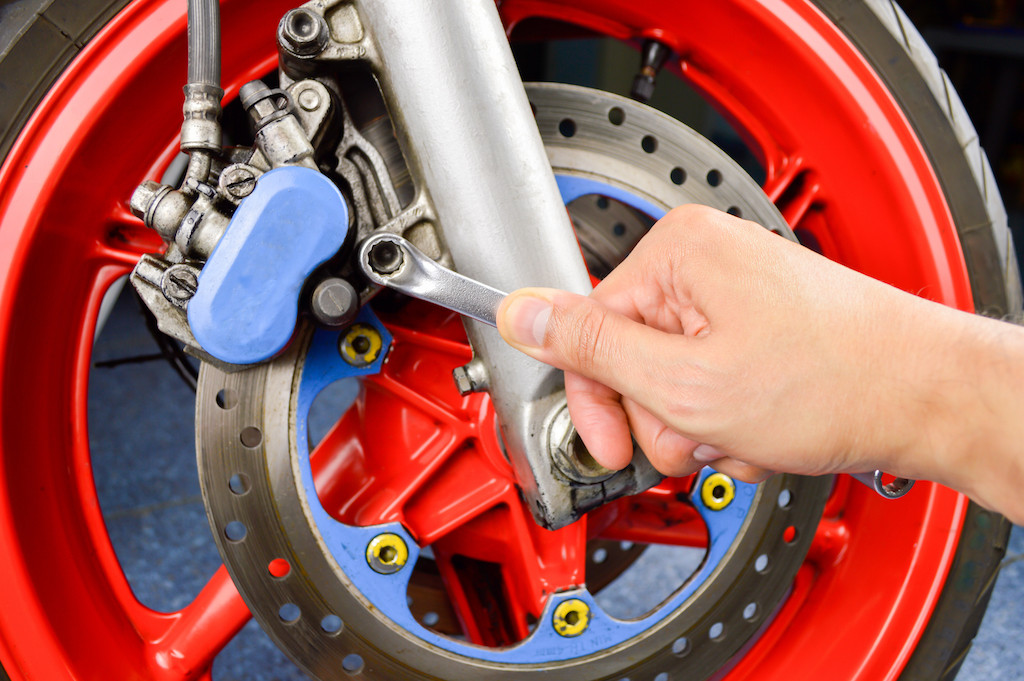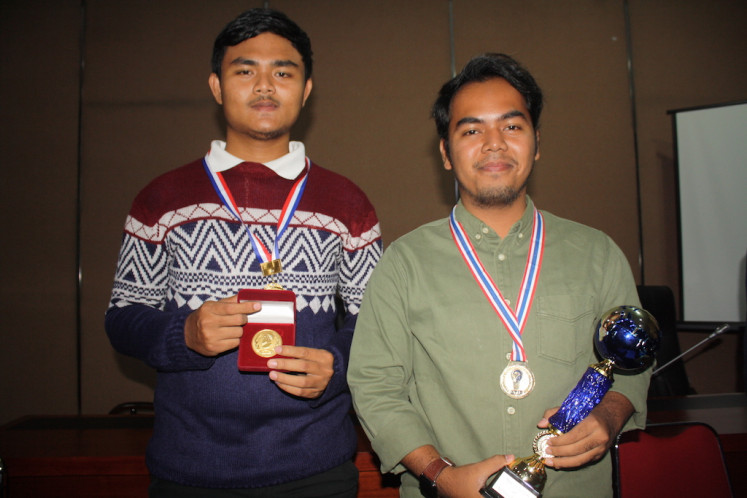Popular Reads
Top Results
Can't find what you're looking for?
View all search resultsPopular Reads
Top Results
Can't find what you're looking for?
View all search resultsUSU students’ plant-based brake pads win international competition
Change text size
Gift Premium Articles
to Anyone
I
nnovative brake pads created by two Indonesian university students won three gold medals at the 22nd Moscow International Salon of Inventions and Innovative Technologies (the Salon Archimedes) in Russia late in March.
Using candlenut shell as the main material, the work of Winelda Mahfud Zaidan Haris and Wahid Nurhayat of North Sumatra University (USU) won the three gold medals and a trophy in a competition involving participants from 38 countries.
Winelda said he is delighted that their innovative product, named the "biodisc brake", has drawn the attention of foreign investors.
“Some countries, including Saudi Arabia and Thailand, have offered to buy the license and patent rights of the biodisc brake, but we have to decline the offers because we believe the products could be manufactured in Indonesia,” Winelda told The Jakarta Post following a press conference at the USU rectorate office on Friday.
He said their biodisc invention was a brake pad for two-wheeled vehicles and that they were made of candlenut shells to have zero negative impact on the users and their surroundings. He explained that some brake pads contain asbestos, which is known to cause lung cancer.
“That is why we choose candlenut shell as the main ingredient for biodisc brakes, as it is environmentally friendly,” said Winelda, who enrolled in USU’s school of dentistry in 2015. The use of candlenut in this product also makes it last longer.
Wahid Nurhayat (left) and Winelda Mahfud Zaidan Haris display their gold medals and trophy at the USU rectorate office in Medan, North Sumatra. The students' plant-based brake pads were recognized at the 22nd Moscow International Salon of Inventions and Innovative Technologies. (JP/Apriadi Gunawan)Read also: Indonesian students' innovations recognized with gold, silver medals in Moscow
Winelda’s fellow team member, Wahid Nurhayat, said that the biodisc brake had undergone selection processes in five countries, until finally it reached the competition stage in Russia in late March.
Wahid said that a limited number of the brake pads would be manufactured with the support of the Research, Technology and Higher Education Ministry through the Technology-Based Beginner Company Candidate program. He said 2,000 would be produced in the first phase.
“We will sell them for Rp 35,000 (US$2.47) each. [That is] Rp 10,000 cheaper than conventional brake pads,” said Wahid, a student of USU’s School of Math and Science.
He said that in the future he would seek an Indonesian company willing to produce biodisc brakes en masse for local and international markets.
USU deputy rector Rosmayati said the university was prepared to set up a company to help manufacture the innovative product. “USU is interested in helping,” she told The Post.
She said it was the highest achievement ever by USU students in an international competition.
“This makes USU proud,” she said, expressing hope that other students would follow suit. (yun/mut)








